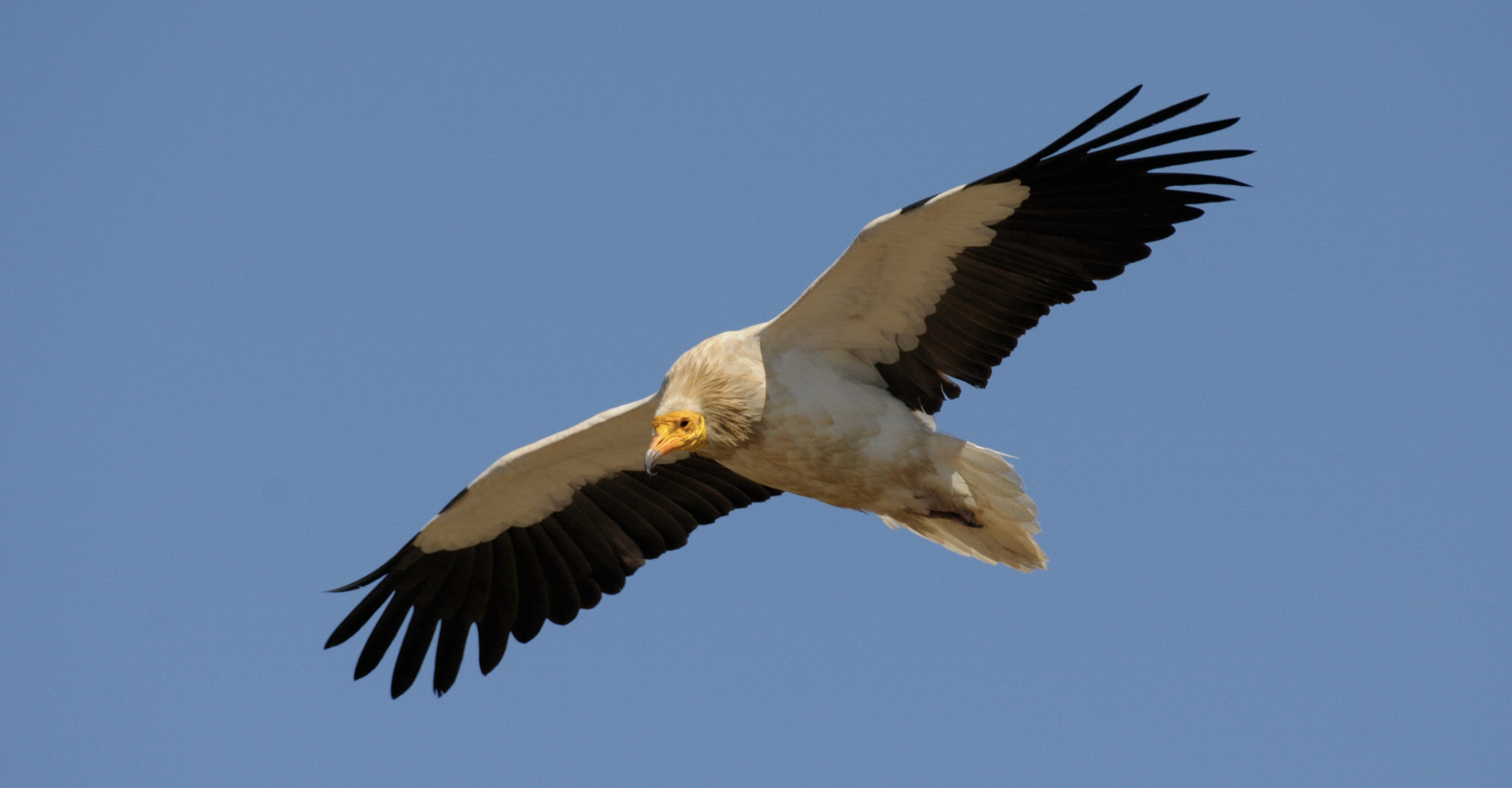
An Egyptian Vulture breeding pair in Israel has been busy during their breeding period in the past few months, and it seems that their hard work has paid off! They recently welcomed two chicks that hatched five days apart. Watch the moments the chicks hatched below.
First chick hatches
The pair welcomed their first chick this season on Tuesday 10 May, 42 days after incubation. https://www.facebook.com/plugins/video.php?href=https%3A%2F%2Fwww.facebook.com%2F1518871808419083%2Fvideos%2F585481475397321%2F&show_text=0&width=560
Second chick hatches
The younger chick hatched on 15 May, five days later after the hatching of its older sibling.
The pair most likely laid the first egg around 29 March and the second around 1-3 April. There is a five day difference between the hatching, but this difference can be due to various reasons and not necessarily the difference between the days they laid the clutch.https://www.facebook.com/plugins/video.php?href=https%3A%2F%2Fwww.facebook.com%2F1518871808419083%2Fvideos%2F996753937409117%2F&show_text=0&width=560
The parents are very nurturing, and of course, are busy finding food to feed their young. So far, the parents brought them pieces of meat from carcasses they scavenge on. But pigeons also appear to be a significant component of this special Egyptian Vulture pair’s diet.
We hope that the siblings will fledge and have a long life ahead of them in the wild.
Watch the Egyptian Vulture nest live.
Update 28/05/2020
The Egyptian Vulture chicks in the nest are growing. They are already 17 and 12 days old.
What are they eating? Thanks to the nest cam, we can observe that their parents feed them small pieces of mammals carcasses, but occasionally also birds like doves. Another possibility is that their parents are feeding them reptiles, but this is not confirmed in this case.https://www.facebook.com/plugins/video.php?href=https%3A%2F%2Fwww.facebook.com%2F1518871808419083%2Fvideos%2F252249772666461%2F&show_text=0&width=560
Egyptian Vultures in Israel
The Egyptian Vulture population in Israel is on the brink of extinction. However, this wasn’t always the case. In the mid 20th century, there were hundreds of Egyptian Vulture pairs nesting throughout Israel, but their population dwindled over the years due to various threats including poisonings, habitat loss, disturbance, and electrocution and collision. Today, there are 50 pairs distributed in the Golan Heights, the Judean Desert and the Negev. The Nature and Parks Authority, Hai-Bar Carmel Nature Reserve and other stakeholders implement various conservation measures to preserve these important populations.
Sign up to our newsletter and never miss any vultures news!



